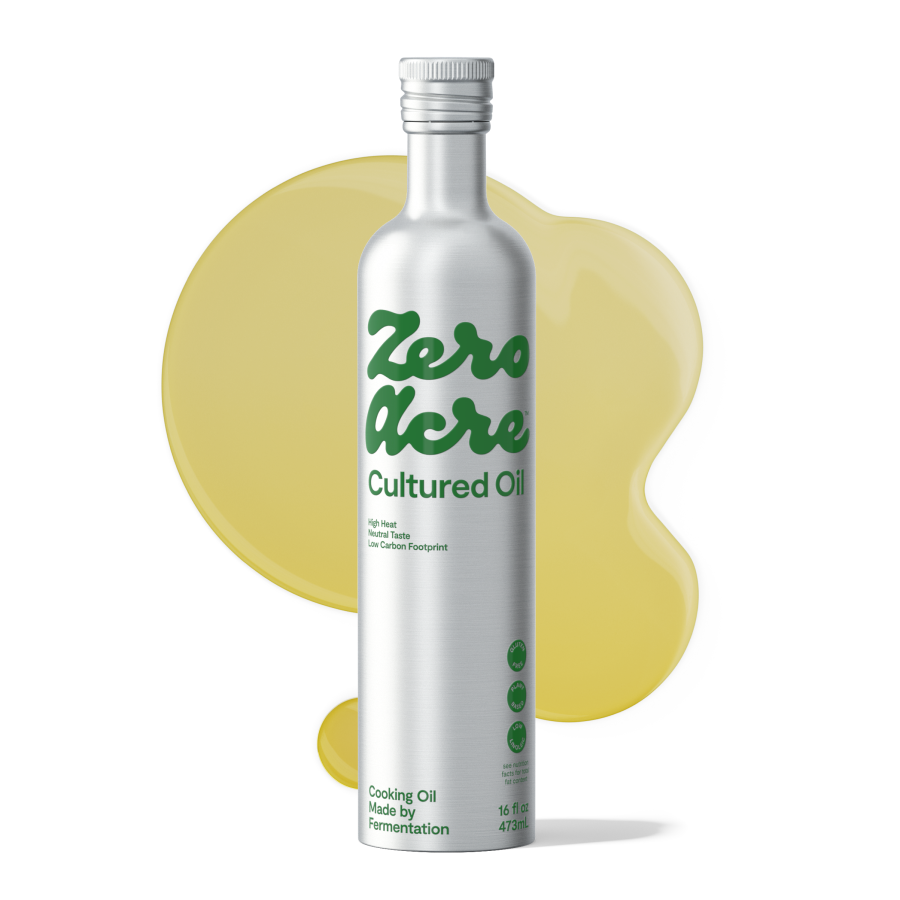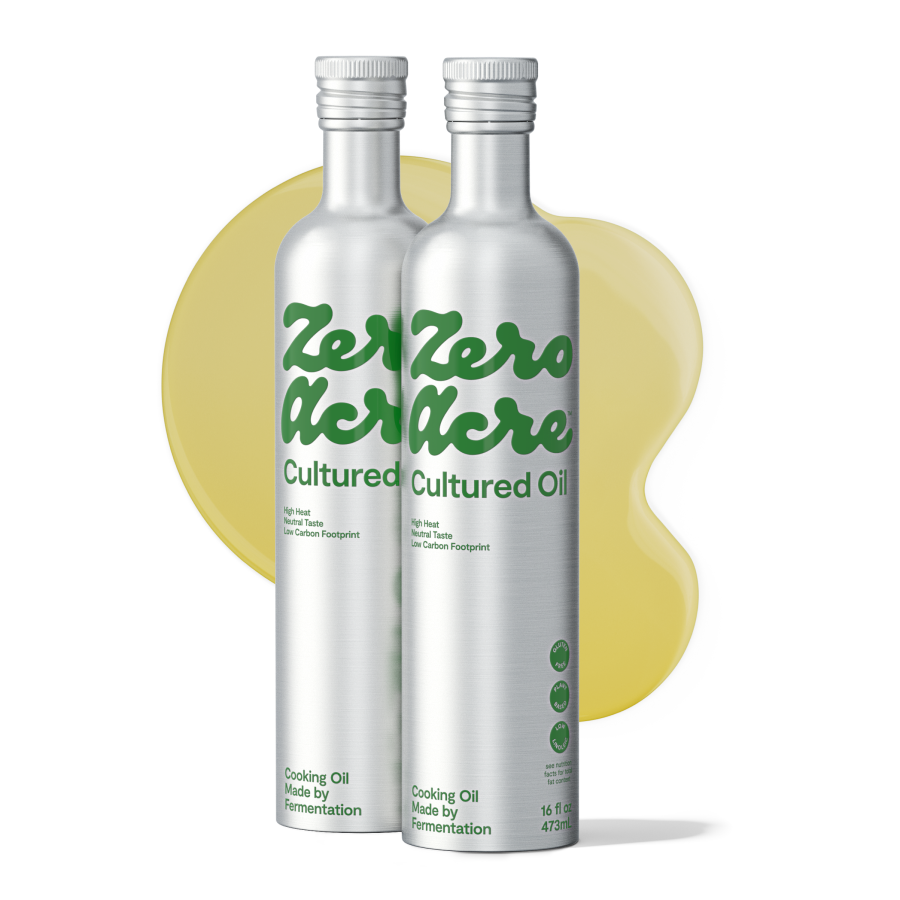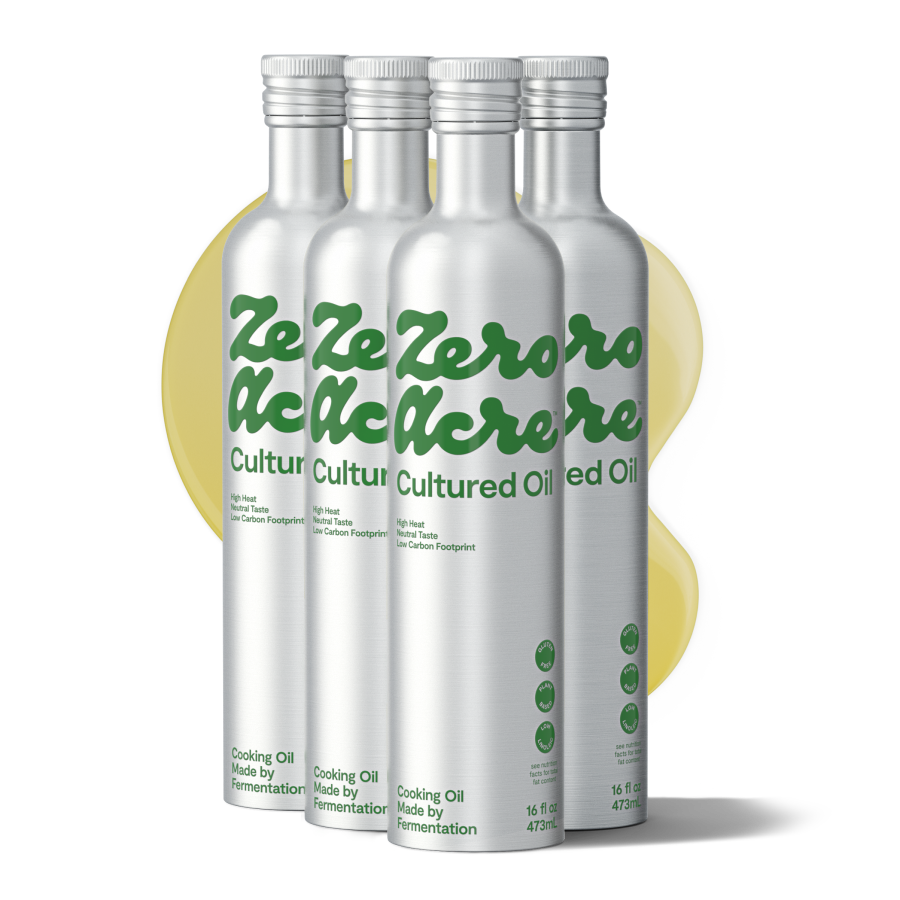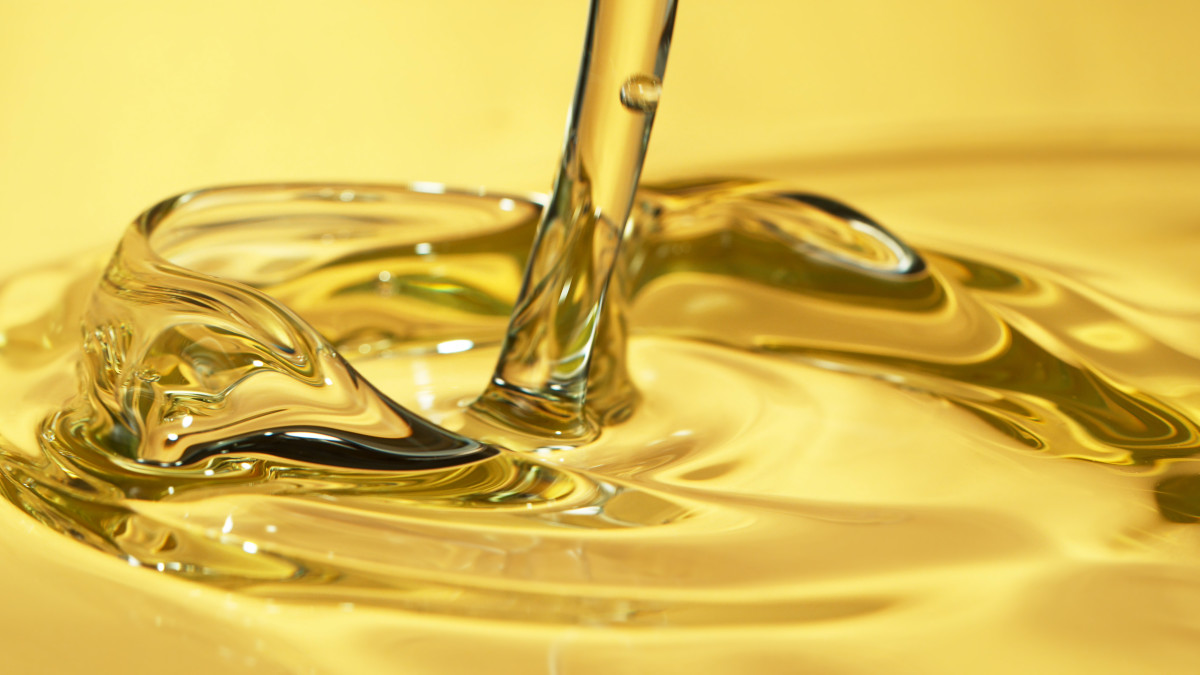WRITTEN BY: The Zero Acre Editorial Team
Article at a Glance
Coffee is universally loved by people across the globe and has a host of research-backed health benefits.
Non-dairy creamers are a popular coffee addition but are often filled with hidden vegetable oil that may contribute to harmful health effects.
The most popular vegetable oils in coffee creamers are sunflower, soybean, and canola oil — all high in inflammatory linoleic acid.
Thankfully, it’s possible to enjoy a creamy cup of coffee without compromising health benefits by choosing a creamer or creamer alternative without added vegetable oils.
Introduction
Coffee is one of the most popular beverages on the planet, with over 60% of adults consuming at least one cup a day [*].
Coffee boosts energy and alertness, is a major source of antioxidants, and provides a host of health benefits [*]. This is great news for anyone who relies on coffee to start their mornings. But anyone who prefers to add cream and sugar to their coffee might wonder, are those health benefits still valid if you add creamer to your morning cup?
While coffee may be good for you, many popular creamers are probably not. It goes without saying that many of them contain added sugars or artificial sweeteners, due to their sweetness. What many people don’t realize is that most conventional coffee creamers also contain another unfortunate ingredient: vegetable oil.
Coffee is supposed to taste good and make you feel better. But if there's vegetable oil in your morning brew, you might be doing more harm than good. Read on to find out how and what to use instead.
Why Are Vegetable Oils in Your Coffee Creamer?
Vegetable oils, also known as seed oils, are often added to creamers and non-dairy milks in an effort to make them creamier, more milk-like, and more shelf-stable.
Unless you’re using half and half or heavy cream, your coffee creamer probably doesn’t contain any real dairy-based cream. Instead, coffee creamer manufacturers try to replicate the look and feel of dairy cream by adding oil to mimic dairy fat and corn syrup or other sweeteners to make up for the naturally sweet taste of milk.
Some of the most common vegetable oils used to make packaged coffee creamers are soybean, canola, and sunflower oil.
Vegetable oil-based coffee creamers tout a much longer shelf life than perishable dairy-based counterparts. However, the potential health effects of added vegetable oils may start to make a shorter shelf life feel like a price you’re willing to pay.
Are Vegetable Oils Bad For You?
Vegetable oils are not the same as veggies. While vegetables are fairly uncontroversial and considered good for you, vegetable oils are not.
The problem with most vegetable oils is their sky-high omega-6 fatty acid content (linoleic acid), which is harmful when consumed in excess. Here are just a few of the health concerns that have been linked to excess linoleic acid consumption:
Increased risk of chronic disease. Many chronic health conditions, including heart disease, obesity, insulin resistance, and diabetes are linked to diets high in omega-6 fats [*].
Oxidative stress. Linoleic acid promotes oxidative stress in the body and makes cell membranes more vulnerable to damage from free radicals [*,*].
Chronic inflammation. When consumed in high quantities, linoleic acid promotes inflammation in the body, which in turn is linked to autoimmune disease, cognitive decline, and chronic pain disorders [*].
How Much Vegetable Oil is in Coffee Creamer?
If you’re a fan of non-dairy and alternative creamers, vegetable oil might be the primary addition to your morning coffee.
Just one tablespoon of original coffee creamer from a popular brand contains one gram of fat from vegetable oil. Considering that the default amount of cream added to coffee at a chain like Dunkin Donuts is “3 [two tablespoon] pumps,” most creamer users are likely adding far more than one tablespoon to their morning brew.
Someone who drinks more than one coffee a day and adds 3-4 tablespoons of creamer to each cup could easily (and unknowingly) ingest a whole tablespoon or more of seed oil.
Even if you are someone who just adds a few tablespoons of creamer to their coffee, those few tablespoons every day could potentially contribute to inflammation and other health issues you could otherwise avoid, depending on other dietary and lifestyle factors.
What is The Healthiest Coffee Creamer?
Now that we’ve covered just how problematic most conventional coffee creamers are, you might be wondering if there are any alternatives available made without vegetable oils.
Thankfully, the answer is yes!
When looking for healthier coffee creamer options, start by looking at those that contain real dairy if you can consume them. For example, Chobani recently introduced a line of sweet coffee creamers made with five or fewer ingredients — and seed oils are not one of them.
Non-dairy creamer options made without vegetable oils include Elmhurst 1925 oat milk creamers, NutPods coconut and almond-based creamers, and a back-to-basics coconut milk creamer by So Delicious.
Alternatives to Store-Bought Coffee Creamer
Of course, you don’t have to buy a coffee creamer to maximize the flavor and health benefits of your cup of coffee. Here are a few other ways to enjoy your coffee without risking unwanted additives.
Drink your coffee black. This option might not be right for everyone, but it’s worth trying. Consider investing in high-quality coffee beans and explore different coffee-making techniques to extract the most flavor. You might find that your cup doesn’t need anything else when it already tastes so good!
Heavy cream or half & half. The lusciousness of dairy cream is what all the coffee creamer brands are trying to replicate by using oil, so if it fits within your diet and values to include a dash of real dairy in your morning cup, you can sip without worry.
Coconut milk or coconut cream. This simple plant-based addition will make your coffee naturally creamy and add a hint of tropical flavor from the coconut.
Cinnamon or other spices. Depending on why you like coffee creamer, you may be able to transition away from it by adding a simple spice to your coffee instead. Some people are happy with just a dash of cinnamon for a boost of warmth and subtle sweetness.
Protein powder. Your favorite protein powder might do the trick of flavoring your coffee and adding some creaminess with a dose of protein. Look for brands without processed fillers, vegetable oils, or sugar.
Zero Acre oil. The rise of the keto diet popularized adding low linoleic acid fats like coconut oil, MCT oil, or butter to your coffee. This is also known as “Bulletproof” or keto coffee. Anecdotal reports of this keto coffee have found that it improves focus and delays morning cravings for breakfast. If you have Zero Acre oil on hand, it works as a delicious fat source to add to your keto-approved coffee. Just add a tablespoon in place of the butter or coconut oil — it keeps the coffee low in linoleic acid, vegan friendly, and high in heart-healthy monounsaturated fats.
Zero Acre Oil Coffee
8 oz. Coffee
1 tbsp milk of choice
1 tbsp Zero Acre oil
1 packet chocolate LMNT
Blend all ingredients in a blender until smooth and creamy.
Make your own creamer. When you make food at home, you are in charge of the ingredients. The recipes and flavor combinations are endless — from a simple vanilla creamer to your own blended pumpkin spice mixture. Try the below recipe for a delicious vanilla “latte” free from toxic vegetable oils:
Vanilla Creamer
2 cups milk or non-dairy milk of choice
1 tbsp pure maple syrup (optional)
1 tsp vanilla extract
Blend all ingredients in a blender until smooth. Store in the refrigerator for up to a week.

The Takeaway
You don’t have to give up creamy coffee if that’s the most satisfying way for you to harness the health benefits of the world’s most popular beverage. Most commercial coffee creamers are filled with hidden vegetable oils to increase their shelf life and replicate the creaminess of dairy fat, but veggie-oil creamers aren’t the only option. Some of the easiest alternatives are ones you can make at home with ingredients you probably already have on hand. Have your coffee, and enjoy it, too!



